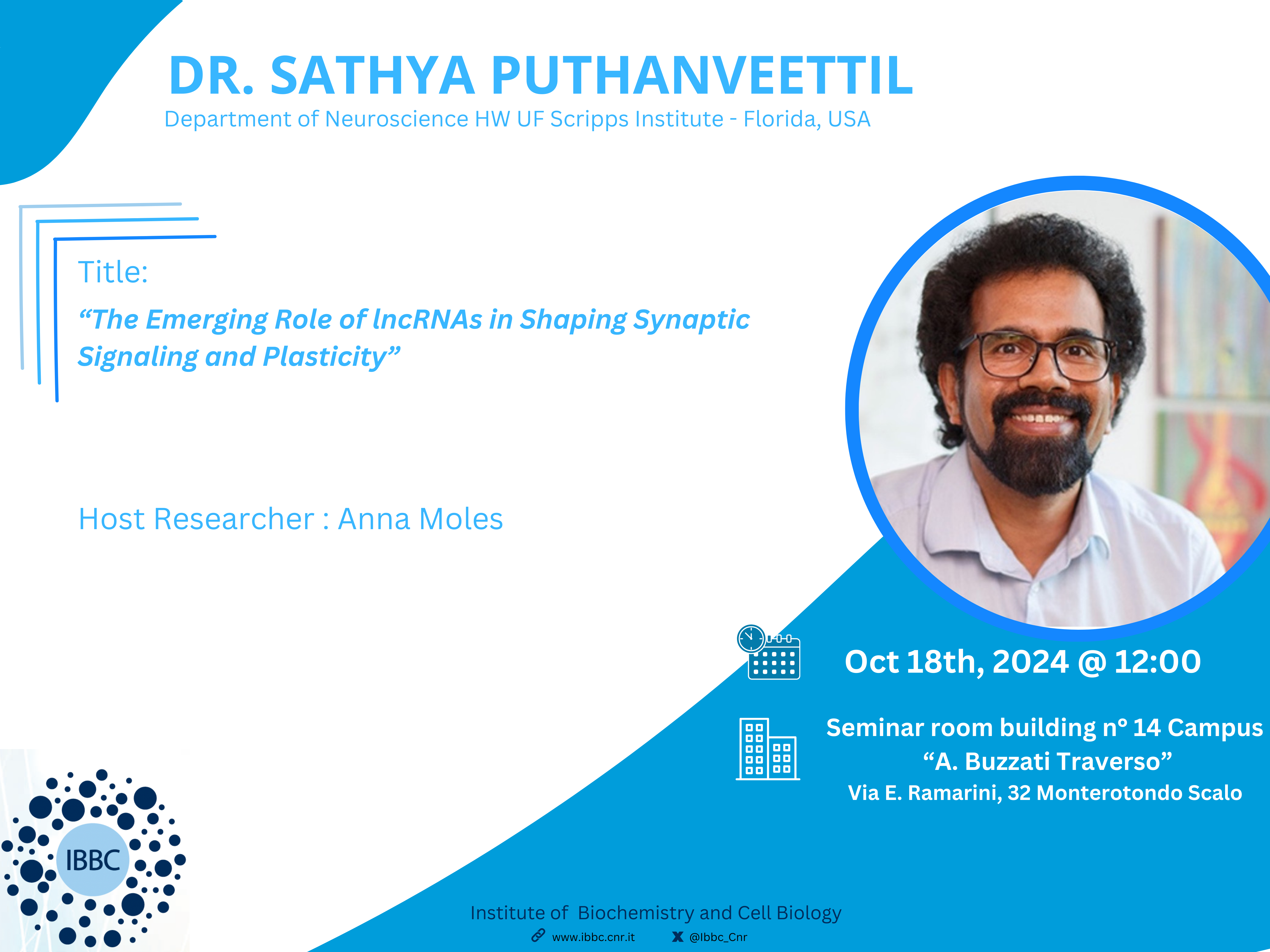- Dr. Sathya Puthanveettil
Department of Neuroscience HW UF Scripps Institute - Title: “The Emerging Role of lncRNAs in Shaping Synaptic Signaling and Plasticity”
- Host researcher : Anna Moles
Brief summary of the seminar :
Long non-coding RNAs (lncRNAs) have emerged as pivotal regulators in the formation of long-term memories (LTM). While nuclear-enriched lncRNAs are well known for their roles in transcriptional and epigenetic regulation, much less is understood about the functions and mechanisms of cytoplasmic lncRNAs in neurons. Our recent findings reveal that lncRNAs are actively transported to dendrites, where they serve as scaffolds for a wide array of coding and non-coding RNAs, as well as proteins. In this talk, I will explore the mechanisms that drive lncRNA transport from the soma to dendrites, the dynamics of this transport, the key regulatory elements that mediate their functions, their molecular interactions, and how they influence activity-dependent synaptic remodeling and long-term memory formation.
Brief summary of the CV :
Sathya Puthanveettil is an Associate Professor in the Department of Neuroscience at the Herbert Wertheim UF Scripps Institute in Jupiter, Florida. He earned his Ph.D. from Washington State University and completed postdoctoral training in the laboratory of Nobel Laureate Eric Kandel at the Howard Hughes Medical Institute, Columbia University. In 2010, he established his independent lab at Scripps Research.
Dr. Puthanveettil’s research investigates the cellular and molecular mechanisms of long-term memory formation, with a focus on how long-distance bidirectional transport between the soma and synapses drives neuronal structural changes critical for memory storage and how this transport is impaired in neurodegenerative disorders. His work has identified several long non-coding RNAs as crucial regulators of synaptic function and plasticity. His research is supported by NIH, NSF, the Alzheimer’s Drug Discovery Foundation, and the Community Foundation.

